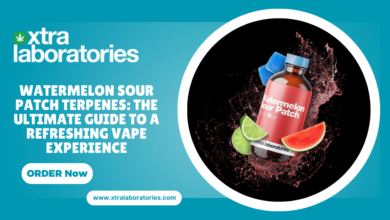Halal certification is a vital aspect for businesses that want to cater to Muslim consumers worldwide. It assures consumers that the products they are purchasing meet the strict guidelines of Islamic law, known as Shariah. From food products to cosmetics, pharmaceuticals, and even financial services, halal certification plays an essential role in ensuring that these products comply with Muslim values. This article will provide a comprehensive understanding of halal certification, its significance, and the process involved in acquiring it.
What is Halal Certification?
Halal certification refers to the official confirmation that a product or service complies with Islamic dietary laws and other related practices. The term “halal” itself means permissible or lawful in Arabic, and it refers to anything that is allowed according to Islamic law. This certification is crucial for Muslim consumers who adhere to religious guidelines regarding food, beverages, and other products in their daily lives.
The certification process is carried out by a recognized halal certifying body, which assesses various factors such as ingredients, production processes, and quality controls. Once a product is certified halal, it is deemed safe and permissible for consumption or use by Muslims.
Scope of Halal Certification
Halal certification is applicable across a wide range of industries, including:
- Food and Beverage: Ensuring the absence of haram (forbidden) ingredients like pork or alcohol in food products.
- Cosmetics: Verifying that beauty and personal care products do not contain forbidden substances.
- Pharmaceuticals: Ensuring that medications, supplements, and vaccines do not contain animal-derived ingredients such as gelatin or alcohol.
- Finance: Offering financial services that comply with Shariah law, avoiding interest-based transactions.
- Fashion: Ensuring clothing and accessories are made in a way that adheres to Islamic principles.
Why is Halal Certification Important?
1. Religious Compliance for Muslim Consumers
For Muslims, halal certification provides assurance that the product or service they are using is aligned with their religious beliefs. Consuming halal products is a religious obligation, and it covers not only food but also other products such as cosmetics, pharmaceuticals, and even financial services. Therefore, halal certification is a critical factor for Muslim consumers when making purchasing decisions.
Without halal certification, Muslim consumers may be unsure if the products they are buying meet Islamic standards, leading to hesitation or rejection of such products. Halal certification ensures that Muslim consumers can confidently purchase products that align with their faith.
2. Rising Global Demand
The global halal market is expanding rapidly, driven by the growing Muslim population, which now exceeds 1.9 billion. The demand for halal-certified products is not limited to Muslim-majority countries but is also increasing in non-Muslim-majority regions. This is largely due to a rise in ethical and health-conscious consumers who prefer halal products because they are perceived as safer, cleaner, and more ethical.
As a result, halal certification has become a crucial factor for businesses that want to tap into the global market. By acquiring halal certification, businesses can open doors to new markets and gain access to a diverse and growing consumer base.
3. Health and Ethical Considerations
Halal-certified products are often perceived as healthier and more ethically produced. For example, halal meat is slaughtered following strict guidelines that ensure humane treatment of animals, while non-halal products may not adhere to such practices. Additionally, halal food products are free from harmful ingredients such as pork, alcohol, and artificial preservatives.
Halal certification provides consumers with peace of mind, knowing that the products they are using are produced with high ethical standards and meet strict health guidelines.
4. Market Expansion for Businesses
Businesses that obtain halal certification can access a growing and lucrative market. The halal industry, including food, cosmetics, and finance, is expected to exceed $9 trillion by 2025. By acquiring halal certification, businesses not only cater to Muslim consumers but also tap into a wider market of health-conscious and ethical consumers.
Moreover, halal certification can provide businesses with a competitive advantage by differentiating them from competitors who do not have this certification.
The Process of Obtaining Halal Certification
Obtaining halal certification US involves a structured process that ensures products meet the necessary requirements set by Islamic law. The process generally includes the following steps:
1. Choose a Halal Certification Body
The first step in obtaining halal certification is to select a recognized halal certification body. These organizations are responsible for assessing products, facilities, and processes to ensure they meet halal standards. There are numerous halal certification bodies worldwide, and the credibility of these organizations is essential for ensuring that the certification holds value.
Some of the most recognized halal certifying bodies include the Islamic Food and Nutrition Council of America (IFANCA), JAKIM (Malaysia’s Department of Islamic Development), and the Halal Certification Europe. Companies should choose a certifying body that is reputable and widely accepted in the markets they intend to serve.
2. Submit Application and Provide Documentation
Once a certifying body is chosen, the company must submit an application that includes detailed documentation about the product or service. This includes information about ingredients, production processes, suppliers, and facility operations. Companies must be transparent about their sourcing and manufacturing practices.
For example, in the food industry, companies may need to disclose all ingredients and provide information on where they are sourced from. This ensures that no non-halal ingredients are used in the production process.
3. Ingredient and Production Process Review
The next step in the certification process involves reviewing the ingredients and production processes. For food products, this involves checking that all ingredients are halal, free from pork, alcohol, or any other forbidden substances. The certifying body will also verify that the product is processed using halal methods, such as humane animal slaughtering practices for meat products.
In the cosmetics and pharmaceutical industries, the certifying body will check that no animal-derived ingredients or haram substances are included in the product formulations. If any concerns arise, the company may be required to adjust the formulation or sourcing practices.
4. Facility Inspection and Audit
In most cases, the certification body will conduct an on-site inspection of the company’s facility to ensure that the production processes adhere to halal standards. This inspection includes evaluating hygiene practices, equipment used for production, and the potential for cross-contamination with non-halal products.
For example, in the food industry, the halal certifying body may inspect the kitchen, factory floor, and storage areas to ensure that halal and non-halal products are properly segregated.
5. Halal Certification Issuance
After the review process is complete and the product is deemed compliant with halal requirements, the certifying body will issue the halal certification. This certificate allows the company to market their products as halal and display the halal certification logo or symbol on the packaging.
The halal certificate typically includes a registration number and the name of the certifying body, allowing consumers to verify the authenticity of the certification.
6. Ongoing Monitoring and Recertification
Halal certification is not a one-time process. To maintain certification, companies must undergo regular audits and inspections to ensure ongoing compliance. The certification body may require annual inspections or reviews of any changes in the production process, ingredients, or sourcing practices. If any changes are made to the product or process, the company must notify the certifying body to ensure continued halal compliance.
Re-certification may be required every 1-3 years, depending on the certifying body’s guidelines.
Key Sectors That Benefit from Halal Certification
1. Food and Beverage Industry
The food and beverage industry is the largest and most well-known sector to benefit from halal certification. Halal food products must meet stringent guidelines, including the exclusion of pork, alcohol, and other forbidden ingredients. Additionally, halal meat must be slaughtered according to Islamic principles.
Halal certification in this sector ensures that food products are safe for Muslim consumers and helps businesses access global markets.
2. Cosmetics and Personal Care
The halal cosmetics and personal care market is growing rapidly, driven by the increasing demand for ethical and health-conscious products. Halal-certified beauty products are free from harmful chemicals, alcohol, and non-halal animal-derived ingredients, making them appealing to Muslim consumers and ethical buyers alike.
3. Pharmaceuticals and Supplements
Halal certification is also important in the pharmaceutical industry, ensuring that medicines, vitamins, and supplements do not contain haram substances. With increasing consumer awareness of halal products, companies that produce pharmaceutical products are now offering halal-certified alternatives to cater to Muslim populations.
4. Finance and Banking
Islamic finance is based on Shariah principles, which prohibit interest-based transactions (riba) and unethical investments. Halal certification in finance ensures that financial products, including loans, mortgages, and investment opportunities, comply with these principles. Many Islamic banks now offer halal-certified financial services.
Conclusion
Halal certification is an essential process for businesses that wish to cater to Muslim consumers. It ensures that products and services meet the requirements of Islamic law, providing consumers with confidence and peace of mind. From food and beverages to cosmetics and pharmaceuticals, halal certification plays a vital role in various industries, opening up global markets and boosting consumer trust.
By understanding the halal certification process and its importance, businesses can navigate this growing market and ensure they meet the needs of Muslim consumers. For businesses seeking to expand their reach and build ethical and sustainable practices, obtaining halal certification is a crucial step in gaining a competitive edge.


